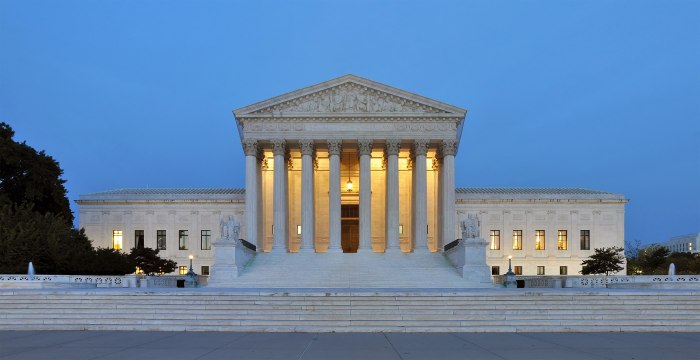BY ARTHUR S. LEONARD | Two HIV-positive Colombian gay men, living in New Jersey as domestic partners, have been denied refuge in the United States by the US Court of Appeals for the 3rd Circuit, based in Philadelphia. The court affirmed a decision by Immigration Judge Mirlande Talal, already approved by the Board of Immigration Appeals, that they had failed to meet the standard for “withholding of removal,” a legal avenue for staying in this country that is an alternative to a grant of asylum.
Significantly, the court found no abuse of discretion in the Immigration judge's refusal to consolidate their cases as involving one “family unit.”
Court rejects “family” label for HIV-positive Colombian men.
Circuit Judge Thomas M. Hardiman's short opinion sketches out the facts of the case in only the barest details. The two Colombian natives entered the US in 1999 on I-94 visas, generally used by students or others temporarily here for an extended stay of finite length, not as permanent immigrants. The couple registered as domestic partners in New Jersey in 2004 after that state's DP law went into effect, but prior to the enactment of the more recent Civil Union Act.
Neither man, however, applied for asylum in the US within a year of entry, which is the deadline for doing so.
When their authorized period in the US expired, they applied to the Department of Homeland Security for withholding of removal or protection under the international Convention Against Torture, alleging that they would be endangered by returning to Colombia.
However, the standard for being treated as a refugee entitled to remain in the United States is very high. For withholding of removal, the petitioner must prove that it is likely he or she will suffer persecution because of membership in a particular social group in their home country. Courts have generally accepted that openly gay people are members of a particular social group for this purpose, based on a 1990 ruling by the Board of Immigration Appeals. But as gay rights have advanced around the world, the number of countries from which a gay person can credibly allege fear of persecution has shrunk, and it appears from this decision that Colombia is not one of them.
Each man testified about having incurred problems in Colombia connected with his sexual orientation. One testified that he was fired from his job when a secretary at his workplace discovered his relationship with his partner. The other testified that he was arrested and briefly detained as a result of a police raid on a disco where he was a patron. Neither of these incidents, however, would qualify as persecution for purposes of refugee law, since persecution requires a serious threat to life or freedom at the hands of the government or forces that the government will not or cannot control.
Quoting a prior court decision, the panel noted that the threat of prosecution must be “severe” and “does not encompass all treatment that our society regards as unfair, unjust, or even unlawful or unconstitutional.” The fact that a particular group is the subject of social ostracism or economic discrimination is not a basis for refugee status under either US law or international treaties. The court observed that the documentary evidence in the record “shows increasing tolerance of homosexuals in Colombia.”
The court noted two facts about gays in Colombia to support its decision about “increasing tolerance.” First, the Colombian military is actually more pro-gay than the US military, since openly gay men are allowed to serve. Additionally, the Colombian Constitutional Court has ruled that teachers could not be dismissed solely due to their sexual orientation.
In other words, it appears that the military and legal systems in Colombia respect the rights of gay men, making it difficult for the applicants in this case to credibly allege that they would be endangered on return to Colombia solely on the basis of their sexual orientation.
The court said nothing about their HIV status, suggesting that this may not have played a significant role in their argument. Sometimes applicants have argued that unavailability of the medications they have been taking in the US would endanger their lives, but Judge Hardiman did not mention any such argument in this opinion.
On the question of the couple being a “family unit,” the court noted that an Immigration judge has discretion over whether to consolidate proceedings involving family members to promote administrative efficiency, but those cases usually involve derivative claims – those in which one individual seeks to remain through their relationship with another who has a more ironclad claim to refugee or permanent immigrant status. There was no derivative claim in this case and, Hardiman wrote, “Appellants' petitions do not rely exclusively on the same incidents of alleged persecution.”
Consequently there was no administrative convenience in holding consolidated proceedings, and each man was certainly entitled to testify at the other's hearings. The court found no denial of due process in refusing to treat the men as a “family unit” for purposes of their claims


































